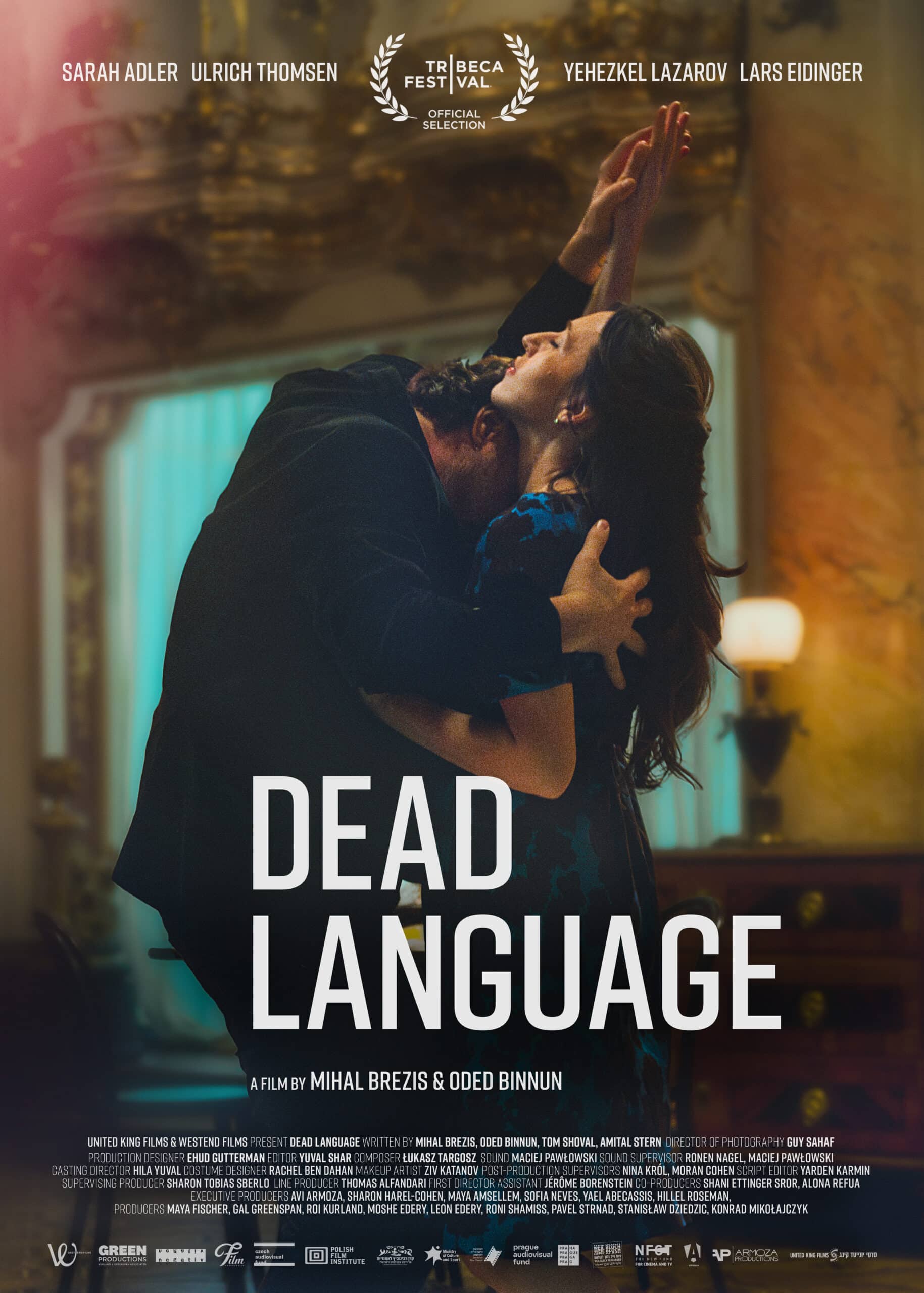
- Starring
- Sarah Adler, Ulrich Thomsen, Lars Eidinger
- Writers
- Mihal Brezis, Amital Stern, Tom Shoval, Oded Binnun
- Directors
- Oded Binnun, Mihal Brezis
- Rating
- n/a
- Running TIme
- 110 minutes
- Release Date
- n/a
Overall Score
Rating Summary
This will be one of several reviews from this year’s Tribeca film Festival. To follow our coverage, click here.
Where can a coincidence lead you? It is the starting point of Dead Language, the sophomore effort by writers and directors Oded Binnun and Mihal Brezis. A deeper version of their Academy-nominated 2012 short film Aya. On an afternoon in an airport, a woman named Aya (Sarah Adler) is waiting for someone in the departure hall. A driver asks her to hold the sign for him while he goes for a cigarette. A few minutes later, the man arrives, and she decides to take him to his hotel. This Impromptu journey fascinates her for the unpredictability and escaping the boredom of her role as an AI sales training manager. Aya soon becomes fascinated by the man and by the upcoming guests in the same room where he is staying in the hotel.
Here, Binnun and Brezis tell the story of a woman rediscovering herself. Aya is married to a writer who is more interested in his book publishing than in her. She just needed to experience new things that her marriage did not provide her. Dead Language is about the journey of a woman and her imagination. Aya wants to make it real and to fulfill her fantasies. On paper, the film boasts a fascinating premise that will have audiences thinking about their lives and how one would want to continue with their realities. However, Binnun and Brezis struggle at developing supporting characters who are not nearly on the same level as the film’s engaging lead.
The film features a few charming moments that present nuances of Aya, such as a magnetic scene with Lars Eidinger’s Mr. Jacob. Above all else, she is simply a curious woman searching for something that she cannot find at home. Still, the story fails to develop her husband into a compelling character. He is a writer, but that is the extent of what is known about him. For a character that is vital to the conclusion of the film, one which surrounds their fantasies and imagination, it is a flaw in his construction. The result is a disappointing conclusion to a story that offers a few stimulating moments, especially the intersection of Aya’s career with her personal life.
Visually, Dead Language implements a realistic strategy that fails to engage with the conversation on imagination, not utilizing the possibilities of its premise to the fullest. Over time, the film leans towards the kind of speech territory that never translates to what the characters are talking about. Even a possible Aya affair is a lightning designer, as the film glimpses at a possible manipulation of the lights as a development of her character and how she looks at life. But this is just a mention that does not work with the rest of the film. In this sense, it merely becomes a bleak approach to the film language, and one that does not explore the narrative possibilities.
In the end, Dead Language offers a fascinating premise about liberty, fantasies, and imagination. Besides a solid performance by Sarah Adler, the film falls short in developing its characters and visual imagination in a way that fully enriches the possibilities of this story.
still courtesy of WestEnd Films
If you liked this, please read our other reviews here and don’t forget to follow us on Twitter or Instagram or like us on Facebook.
Brazilian film writer. He is also a producer and executive producer for Zariah Filmes. Member of the International Film Society Critics Association (IFSCA), International Documentary Association (IDA), and Gotham and Media Film Institute.
Discover more from
Subscribe to get the latest posts sent to your email.
